Welcome
Tropical marine ecosystems provide important resources locally and globally, and support the livelihoods of more than half a billion people around the world. Tropical marine resources, however, are threatened by a number of different factors, including global environmental change, over-exploitation, pollution and environmental degradation caused by coastal development. Our planet's population is predicted to rise from 7.8 billion to 9.7 billion by the year 2050 with major changes expected for coastal societies, and this, combined with coastal transmigration, may lead to doubling of tropical marine resource exploitation over the next 50 years. Additionally, mining for mineral resources in the deep sea poses a threat to an ecosystem whose diversity is poorly understood.
Therefore, it has never been more important for marine biologists to understand the value of marine resources – not just coral reefs and fisheries and not just macroorganisms. In fact, using the marine environment to help meet many of the UN Sustainable Development Goals (the Blue Biotechnology agenda) is underpinned by a need for more holistic understanding of diverse marine ecosystems and the interplay between all organisms within them.
This module has been designed to enable you to speak knowledgably about marine resources and provide you with the capacity to develop your expertise in this field by further reading and research. The bioinformatics practical class complements the lectures by giving you deep insight in how to understand marine diversity from DNA sequence data. There will be an initial focus on microorganisms, both cultivated and uncultivated, that provide a biotechnological 'treasure chest' by supplying novel metabolites and enzymes for pharmaceuticals and more sustainable industrial processes and products, including bioplastics. Invertebrates (and the microbes that they house) are also a major source of novel pharmaceuticals, such as anti-cancer drugs and antibiotics to combat the threat of antimicrobial-resistant pathogens. They are a source of many other products as well as providing inspiration for novel materials. The issues of biofouling and oil pollution, together with their biologically driven resolutions, will be explored in some depth. Resources from the deep sea and tropical coastal environments will also be discussed in detail. Here, and throughout the module, you will explore the human element of tropical marine resources, including issues of ownership of marine biodiversity, trade, tourism, conservation and sustainable management. Management strategies need to consider the main factors resulting in ecosystem demise from a multidisciplinary standpoint. However, protecting food security, access to clean water and sustainable economies are key requirements, and illustrate the delicate balancing act between the need for development and conservation.
Module aims
This module aims to provide an understanding of tropical marine resources, i.e. organisms (from microbes to vertebrates) and ecosystems (from deep-sea to coral reefs), emphasizing biotechnological applications, sustainable management and conservation management.
Module learning outcomes
On successful completion of the module, students will be able to:
- Discuss the diversity of tropical marine resources (from microbes to vertebrates) and how they can contribute to sustainable development goals
- Discuss the environmental, social and economic impacts of tropical marine resources and prospects for more sustainable production and harvesting
- Discuss biotechnology industries based around tropical marine resources
- Discuss biotechnological products stemming from marine resources
- Explain how marine invertebrates can inspire new materials and technologies
- Explain the status and trends in global marine fisheries, with emphasis on tropical marine environments
- Demonstrate an appreciation of the differing roles and agendas of stakeholders associated with local and international marine resource development and an understanding of approaches suited to enhanced planning and management
- Show competence in distilling complex nucleic-acid sequence data into meaningful figures and interpreting the data
- Show competence in retrieving relevant information from diverse sources
- Module Supervisor: Nick Aldred
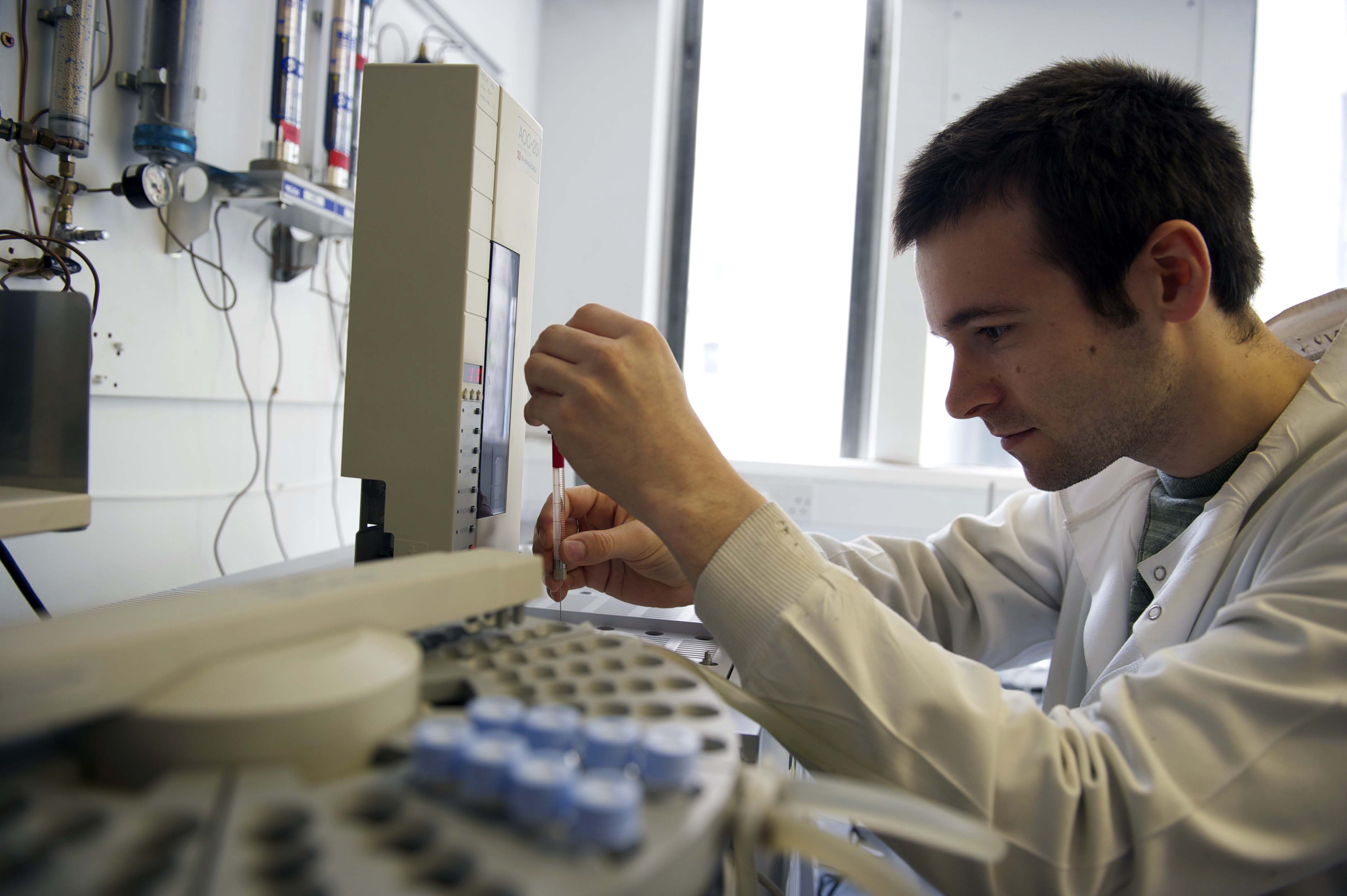
This module aims to widen the skill base in practical research by introducing a range of methodologies to aid in the investigation of tropical marine processes. The seminars and practicals address the most wanted skills and support the material delivered in theory modules by focusing on the components Ecology, Physiology, Biotechnology, Data Analysis and Visualisation. Students will acquire many of the fundamental and some specialised practical skills to effectively operate as professional tropical marine biologists.
Dr Michael Steinke
- Module Supervisor: Michael Steinke
- Module Supervisor: Michael Steinke

- Module Supervisor: Michael Steinke
- Module Supervisor: Martin Wilkes

- Module Supervisor: Boyd McKew
- Module Supervisor: Boyd McKew

In this module you are given the opportunity to either: (i) explore satellite remote-sensing data, such as from NASA’s Giovanni Earth science database, to produce appropriate datasets that can be analysed and visualised for various audiences; or (ii) identify an appropriate industry that you can volunteer for and obtain vocational experience and training.
- Module Supervisor: David Clark
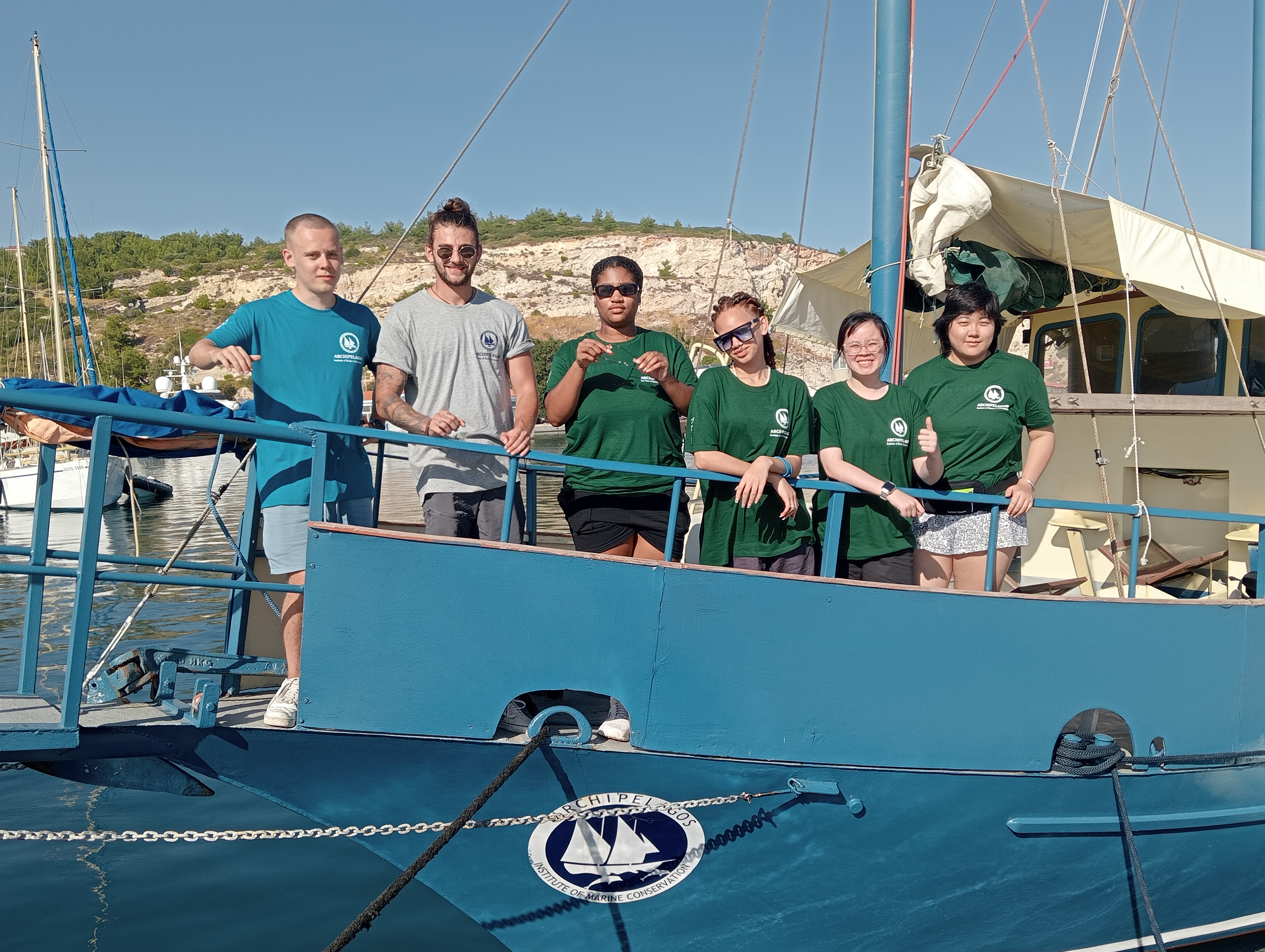
- Module Supervisor: Michael Steinke

- Module Supervisor: Anna Sturrock
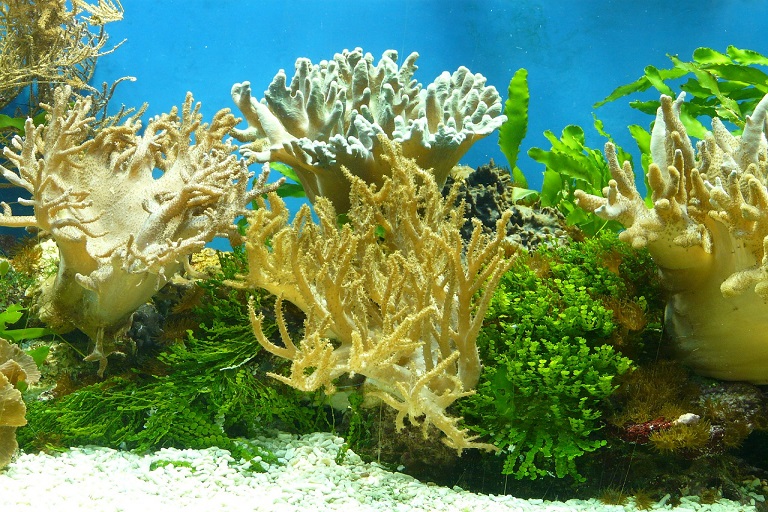
An alternative work-based learning project may also be available. This would include an 8 – 12 week placement. Work-based projects will be shared with students if available. These are not guaranteed and will vary according to the research needs of the placement provider. Students interested in these projects will be need to participate in a selection process.
Students are also able to identify their own work-based projects. These would need to be approved by the academic supervisor and Faculty Placements Team before the placement can start.
Learning Outcomes:
To pass this module students will need to be able to:
1. demonstrate a theoretical and/or applied knowledge of cutting edge approaches to key aspects of tropical marine biology and ecology (e.g. zoology, primary productivity, mariculture and fisheries, microbiology); and/or of applied marine biology (e.g. management, conservation and biotechnology);
2. demonstrate an understanding of the fundamental concepts of marine science (irrespective of disciplinary background), and be able to integrate cross-disciplinary analyses of related issues;
3. demonstrate skills in the critical evaluation of relevant literature;
4. have developed a key range of skills including information acquisition from web-based and library sources, self-learning, writing of a literature review.
- Module Supervisor: Michael Steinke

Integrating fundamental science with clinical aspects, this module is designed to provide students with advanced and up-to-date knowledge in contemporary cancer research. Members of the School and external experts, including guest speakers from hospitals and research institutions will deliver classes both on-campus and within the hospital environment. The module will focus on breast, prostate, colon and lung cancer diseases studied at Essex. The role of cancer stem cells, the immune system, genetic and epigenetic factors and signaling pathways in cancer development will be explored. The application of theoretical knowledge in cancer research into clinical practice ("from bench to bedside") will be discussed.
Learning Outcomes:
To pass the modules student should have:
1. have an in-depth understanding of fundamental molecular and cellular mechanisms of cancer development;
2. understand the pathology of different cancer types;
3. understand how to apply theoretical knowledge into clinical practice in cancer research including personalized medicine, therapeutic strategies, and clinical trials;
4. be able to obtain, analyse and present scientific information through a written essay, poster and oral presentation to standard expected of a junior research scientist.
- Module Supervisor: Andrea Mohr
The module will focus on androgen receptor signalling and therapy resistance in prostate cancer:
Scientific Background to the Module
Prostate cancer is a leading cause of cancer related death in men. The growth of prostate cancer is dependent upon the Androgen Receptor, a ligand-dependent transcription factor (Figure 1). Therapies for prostate cancer therefore aim to reduce androgen production (LHRH agonists) or action, via inhibition of the androgen receptor (anti-androgens). These therapies are initially successful in the majority of patients, but will invariably fail and the tumours progress to a therapy resistant stage termed castrate resistant prostate cancer (CRPC). Much evidence exists to suggest that the androgen receptor continues to drive the growth of CRPC. These mechanisms include mutations of the androgen receptor that reduce ligand specificity, allowing other ligands (e.g. other hormones and anti-androgens) to activate the receptor. This module will explore androgen receptor signaling, and receptor mutations associated with prostate cancer, to demonstrate techniques/technologies used in cancer research.
Learning Outcomes:
1. understand the theory and practice of key techniques used in contemporary cancer research;
2. evaluate methodologies and be able to apply them in the design of experimental procedures in cancer research;
3. work as a team to produce, analyse and present experimental data;
4. understand and analyse data from research papers.
5. Learn how to present research in Scientific Paper Format (SPF)

The development of techniques to manipulate and analyse nucleic acids has revolutionised the study of biology and provided the key driver for the massive expansion in biotechnology. Subsequent to this has been the emergence of the fields of genomics, proteomics, and bioinformatics that are now the focus of the most exciting new advances in biotechnology and have led to the emerging discipline of synthetic biology. Synthetic biology is an emerging area of biotechnology research that can be broadly described as the design and construction of novel artificial biological pathways, organisms or devices, or the re-design of existing natural biological systems (Royal Society, UK).
The Basic Gene Technology part of the module consists of a series of 9 lectures and 6 linked practicals examining the isolation of DNA and RNA, gene cloning, the many applications of the polymerase chain reaction (PCR), the construction and screening of gene and cDNA libraries, directed mutagenesis techniques, transformation of key organisms and basic lab-based sequencing. In addition, DNA fingerprinting methodologies, selection and hybridisation methods will be studied. Finally, the use of reporter genes to measure non-invasively the expression of genes, to set up novel mutant screens and to determine the levels of small molecules in the living cell will be discussed. The Synthetic Biology part of the module (3 lectures) will provide an introduction to the key design concepts in Synthetic Biology which underpin the methods used for rapidly building new biosynthetic pathways using advanced recombinant DNA technology, the construction of novel coding sequences and the synthesis of novel genes and the first synthetic organism. The final 3 lectures will be concerned with some of the underpinning technologies in genomics with special emphasis on next generation sequencing as applied to transcriptomics and chromatin immune precipitation techniques.
All of this is underpinned by a series of practical classes which jointly show how CRISPR/Cas9 genome editing, an exciting new method, can be used to edit a gene in human cell genomes which is associated with cancer development. The practicals are designed to provide first-hand experience of key procedures and are coordinated with the first 9 lectures of the course to reinforce the theory.
Learning Outcomes
To pass this module, students will need to be able to:
1. To have an understanding of how manipulation of nucleic acids has been central to the developments made in biotechnology and biology as a whole.
2. Be able to describe the major tools used in gene technology and understand how such tools are used.
3. Be able to explain how molecular techniques can be used in combination to explore biological questions.
4. To have an understanding of the importance of gene technology and of the rapidly developing field of synthetic biology.
5. To have an understanding of the applications of genome scale methods for studying gene expression in biotechnology and molecular medicine.
6. Be able to demonstrate practical competence in key gene manipulation techniques.
7. To have developed a range of key skills including information acquisition from web-based and library sources, self-directed learning, critical analysis of data, numeracy, writing and presentation of scientific reports.
- Module Supervisor: Philip Reeves
The immense diversity and metabolic versatility of microorganisms are beginning to be exploited in an ever-increasing number of industrial applications. The advantages of using microorganisms, as outlined below, are manifold, but unless bio-industrial processes are competitive with traditional methods their potential will not be realised. By using new and exciting techniques to manipulate genes, natural diversity can be extended to increase yield, rate and specificity, thereby making reactions more efficient and economical. The drive towards sustainable development has led to a green revolution in chemistry. Microbial transformations require milder conditions than chemically catalysed reactions and are more specific, resulting in cleaner, greener processes. Renewable raw materials, and even waste products, can be worked by microorganisms to create useful products ranging from fuels to food supplements, reducing reliance on non-sustainable, petroleum-based products. Moreover, biotransformations can result in stereo- and regio-selective products, which are becoming a prerequisite for the manufacture of pharmaceuticals and other so-called 'fine chemicals'.
Some microbial products, such as bioadhesives and biopolymers, are biodegradable, which not only serves to protect the environment, but also improves targeted drug delivery. From using Bacillus species as templates for silicone nano-devices to the employment of bacteriorhodopsin as an information storage device, even the computer industry cannot escape the impact of microorganisms.
In this module, we will cover microbial biodiversity and how to access it, e.g. using metagenomics. We will consider the principles of enzymatic reactions and state-of-the-art approaches being used to improve them. We will examine the evolution of techniques to enhance metabolite yield and diversity, using metabolic pathway engineering and systems biology approaches. We will consider diverse examples in which biology has been exploited to make useful products, ranging from pharmaceuticals, vitamins, amino acids, biofuels, electricity, biomaterials and nano-products.
LEARNING OUTCOMES:
1. understand the fundamental mechanisms that underpin industrial biotechnology;
2. explain the importance of biological diversity, and the approaches used to enhance natural diversity in order to create new products;
3. illustrate the advantages (and disadvantages) of biological compared with traditional chemical processes;
4. describe how multi-disciplinary approaches are resulting in new processes and hybrid materials;
5. outline the main applications of biotechnology in industry, focusing on novel technologies.
- Module Supervisor: James Birrell
Over the last 30 years, Biotechnology has had a major impact on human diseases of socio-economic importance. Molecular Medicine has traditionally been concerned with genetically inherited diseases. While this still represents an important part of biomedicine, molecular biology technology at both the genomics and proteomics level now impinges on infectious diseases and on other major non-infectious diseases such as cancer, heart disease and autoimmunity. The overall aim of this module is to provide an understanding of how basic gene and protein-based technologies, as covered in the core modules on the Masters course, are applied in human medicine, with particular emphasis on relevance to the Biotechnology/Pharmaceutical industry. The structured lecture course covers the molecular basis of illustrative disease types and Biotechnological applications in diagnostics and development of therapeutics. This module will also provide a clear appreciation of likely future Biotechnological developments in the post-genomics era.
LEARNING OUTCOMES:
To pass this module students will need to be able to:
1. understand the applications of gene and protein based technologies to human disease;
2. use illustrative examples, understand the molecular basis of human diseases of major socio-economic importance;
3. relate key developments in gene-based technology to disease diagnostics;
4. illustrate how Biotechnology research leads to the development of new therapeutics;
5. demonstrate a key range of skills including information acquisition from Web-based and library sources, self-learning, writing and presentation of scientific reports and genomics/proteomics-based problem solving.
- Module Supervisor: Ralf Zwacka
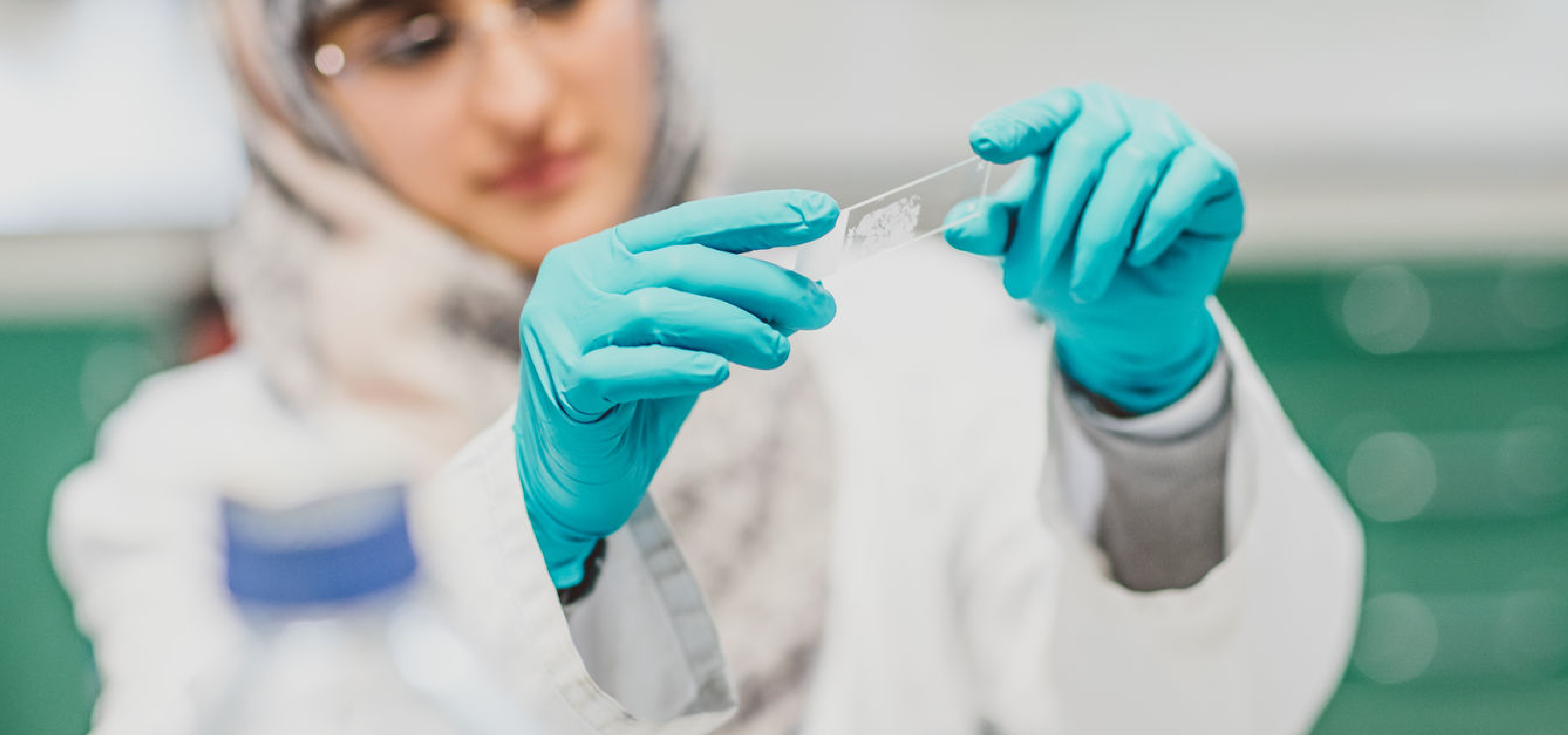
- Module Supervisor: Benjamin Skinner
- Module Supervisor: Andrea Mohr
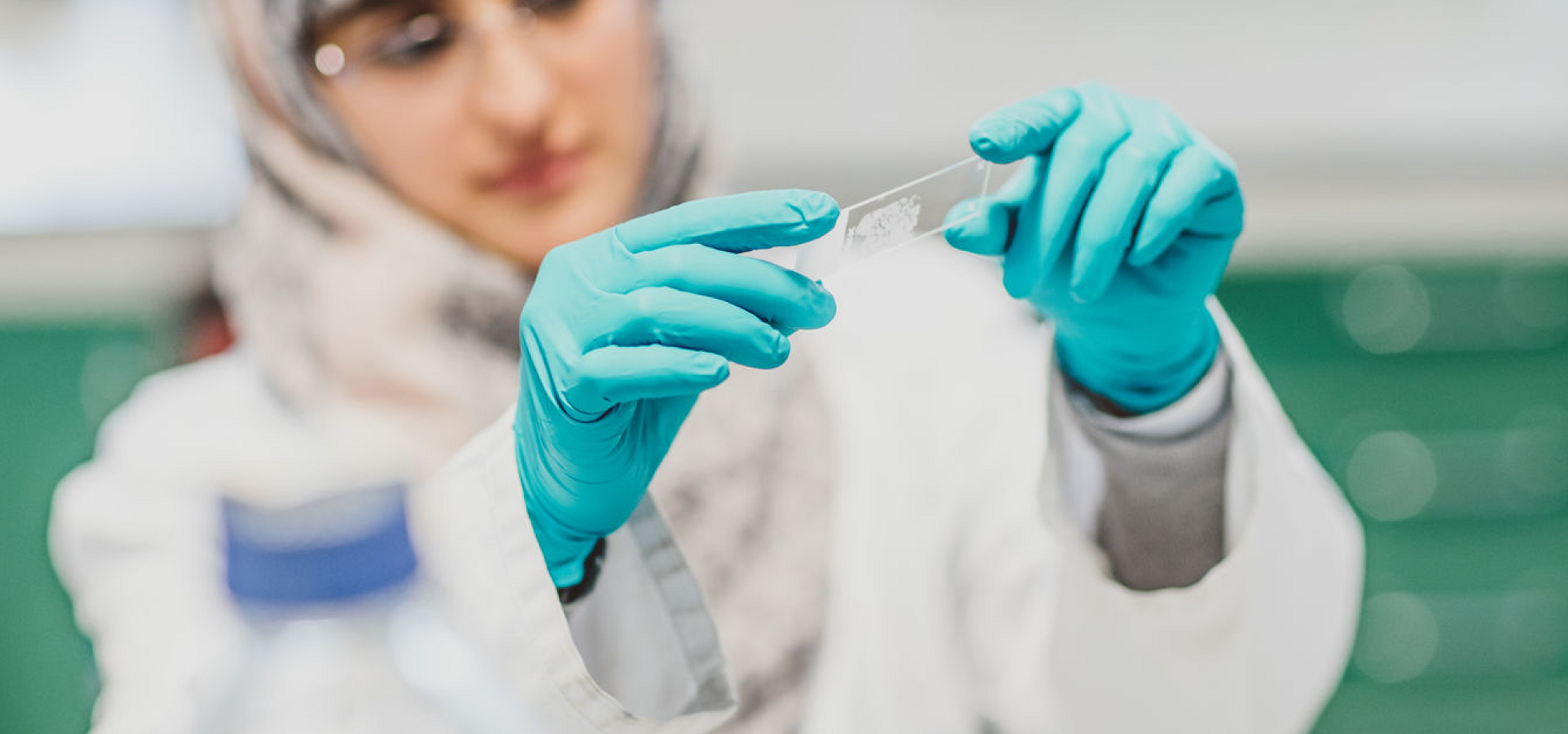
The sequencing of the human genome is one of the biggest achievements of this century. This endeavour resulted from the development of automated sequencing and the use of computers for sequence assembly and annotation. Nowadays, thousands of genomes have been sequenced and the number is increasing exponentially. Genomics is leading to major advances in biotechnology and molecular medicine, e.g. by allowing genomes from thousands of organisms to be mined for novel traits, which can enhance the design of diagnostic tools, and provide: better vaccines, improved treatments for disease, better detection of pollutants, and over-production of antibiotics.
This module covers the latest developments in genomic technologies: high-throughput sequencing and computational genomics. The module has a strong practical component to provide a realistic understanding on how a genome project is carried out.
Aims
The aim of this module is twofold. First, it will provide a general understanding of current genomics approaches, including genome sequencing and comparative genomics. Second, students will learn how to study their own genomic data, using state-of-the-art computational resources.
Learning Outcomes
To pass this module, students will need to be able to:
1. Understand the basics of genome sequencing;
2. Process high-throughput sequencing data to produce assembled genomes;
3. Annotate genomic sequences;
4. Know how prokaryotic and eukaryotic genomes are organised;
5. Analyse re-sequencing data to study genome variation;
6. Demonstrate the ability to plan and develop a genome sequencing project;
7. Understand the theoretical basis of sequence similarity search;
8. Detect evolutionary related sequences and build phylogenetic trees.
- Module Supervisor: Antonio Marco
Aims
The module aims to provide students with the necessary knowledge, skills and hand-on experience in protein production, purification and analysis.
Learning Outcomes
In order to pass this module the student will need to be able to:
1. Explain the factors that determine protein structure and function;
2. Be able to discuss the different levels of protein structural organization;
3. Explain how proteins are synthesized in the cell and how their function is regulated by alternative splicing and post-translational modification;
4. Discuss protein targeting in prokaryotic and eukaryotic cells;
5. Describe the range of techniques used in protein analysis;
6. Discuss the methods of production of recombinant proteins;
7. Describe how different types of chromatography can be combined to achieve better protein purification;
8. Describe gel electrophoresis and its application for protein analysis;
9. Understand the principles of proteomics and its applications;
10. Demonstrate practical competence in key protein purification and analysis techniques;
11. Develop a range of key skills including information acquisition from web-based and library sources, self-directed learning, numeracy, writing and presentation of scientific reports.
- Module Supervisor: Vassiliy Bavro
The Standalone Literature Review, Project Report, poster and talk will enable you to demonstrate your presentation and communication skills. The weighting of the project means that it is vital that you perform well in this aspect of your studies and that you are diligent in your reading, practical work and the preparation of your report, and oral and poster presentations.
An alternative work-based learning project may also be available. This would include a 12-20 week placement. Work-based projects will be shared with students if available. These are not guaranteed and will vary according to the research needs of the placement provider. Students interested in these projects will need to participate in a selection process.
Students are also able to identify their own work-based projects. These would need to be approved by the Academic Supervisor/Course Director and Faculty Placements Team before the placement can start.
To pass this module students will need to be able to:
1. Demonstrate training and experience in the formulation of research ideas and in designing a research project.
2. Demonstrate practical expertise in laboratory and / or bioinformatic techniques relevant to Biotechnology research.
3. Demonstrate skills in the critical evaluation and interpretation of data.
4. Demonstrate the ability to write a report in scientific paper format and development of a range of skills including information acquisition, self-learning, writing of a literature review, oral and poster presentation of scientific results and scientific meeting organisation.
- Module Supervisor: Corinne Whitby

The module will provide insight into the functioning of the Biotechnology and Bio-Pharmaceutical industries work and an introduction to some of the most timely and contentious topics in Biotechnology, Molecular Medicine and related areas. This will be underpinned by the development of transferable professional and research skills to enhance your chances of gaining employment in the field. The ability to critically analyse, integrate and communicate in a multidisciplinary research environment provides the foundation for your successful career in the Molecular Medicine or Biotechnology/Biopharma area, which is a very broad and applied subject.
Aims
In addition to encouraging critical thinking, the primary focus of most other modules on the course is to provide the theoretical and practical underpinnings of Biotechnology and Molecular Medicine. The aim of this module is different; you are encouraged to think critically about the wider implications of Biotechnology and Molecular Medicine, and to understand some of the key factors that need to be considered when translating a biological idea into a marketable technology. A key aim is to equip you with the research and presentation skills needed to give you the best chance of obtaining employment.
Learning Outcomes
To pass this module, students will need to be able to:
1. Develop personal and professional skills that will enhance employability and research opportunities;
2. Take a critical approach to career development planning;
3. Articulate and communicate research findings in various formats (written and oral) to diverse audiences;
4. Formulate scientific hypotheses and research questions, and explain how they may be addressed;
5. Demonstrate an understanding of research project development and management;
6. Critically assess and summarise complex issues in biotechnology and molecular medicine;
7. Demonstrate an understanding of the key features of the biotechnology and biopharma industry;
8. Critically evaluate the translation of a biological idea to a biotechnological or biopharma product or process.
- Module Supervisor: Andrea Mohr
Your Research Project is the largest piece of work that you will complete during the course and contributes 90 credits (50%) of your final marks. You should find this to be both stimulating and of particular importance for your future career, because it will provide you with the opportunity to analyse a system in some depth and perform a coherent set of experiments allowing you to further develop your skills in experimental design, problem solving and the analysis and interpretation of data.
The Standalone Literature Review, Project Report, poster and talk will enable you to demonstrate your presentation and communication skills. The weighting of the project means that it is vital that you perform well in this aspect of your studies and that you are diligent in your reading, practical work and the preparation of your report, and oral and poster presentations.
An alternative work-based learning project may also be available. This would include a 12-20 week placement. Work-based projects will be shared with students if available. These are not guaranteed and will vary according to the research needs of the placement provider. Students interested in these projects will need to participate in a selection process.
Students are also able to identify their own work-based projects. These would need to be approved by the Academic Supervisor/Course Director and Faculty Placements Team before the placement can start.
To pass this module students will need to be able to:
1. Demonstrate training and experience in the formulation of research ideas and in designing a research project.
2. Demonstrate practical expertise in laboratory and / or bioinformatic techniques relevant to research in Molecular Medicine.
3. Demonstrate skills in the critical evaluation and interpretation of data.
4. Demonstrate the ability to write a report in scientific paper format and development of a range of skills including information acquisition, self-learning, writing of a literature review, oral and poster presentation of scientific results and scientific meeting organisation.
- Module Supervisor: Vassiliy Bavro
- Module Supervisor: Ralf Zwacka
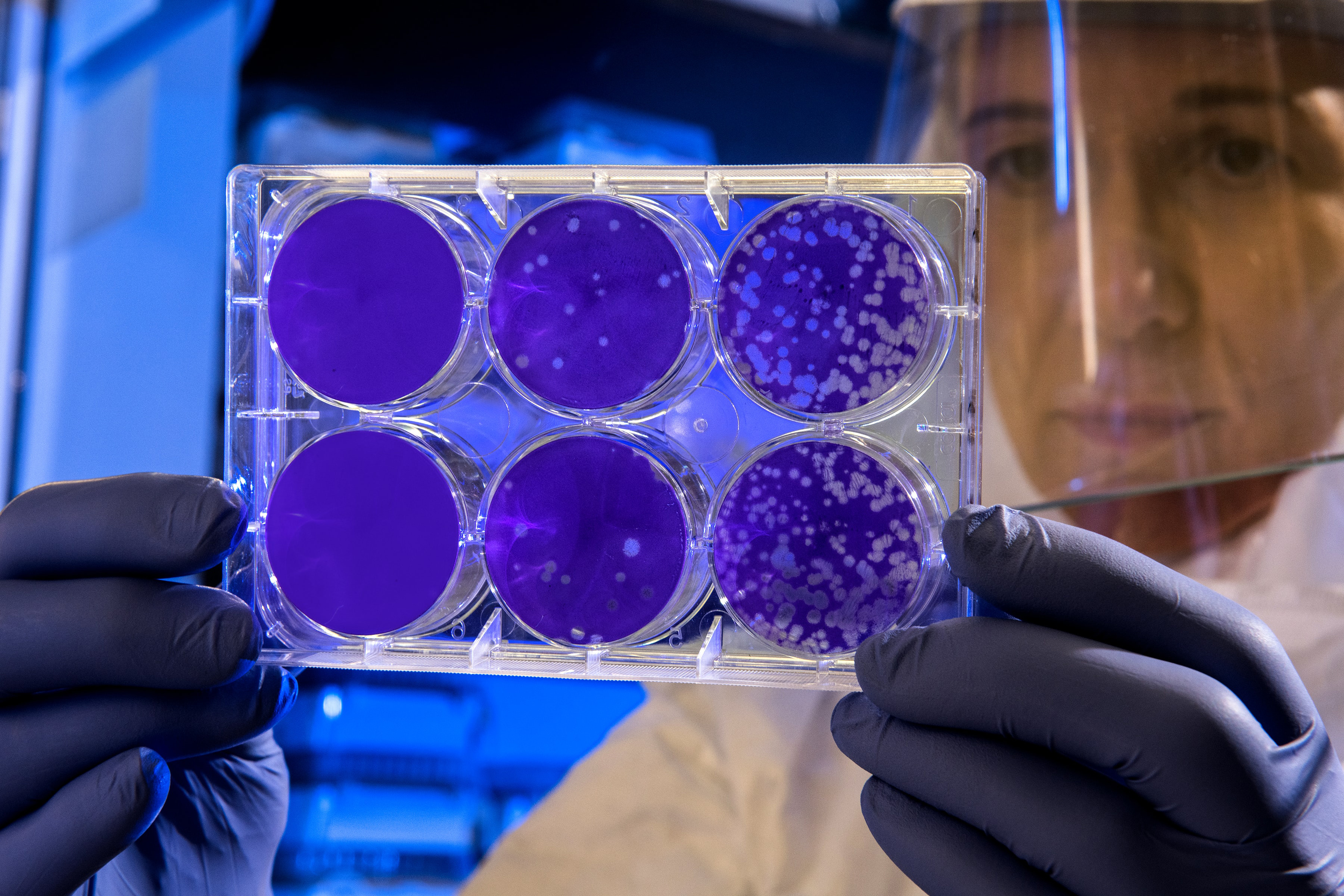
The Project Report, poster and talk will enable you to demonstrate your presentation and communication skills. The weighting of the project means that it is vital that you perform well in this aspect of your studies and that you are diligent in your reading, practical work and the preparation of your report, and oral and poster presentations.
An alternative work-based learning project may also be available. This would include an 8 – 12 week placement. Work-based projects will be shared with students if available. These are not guaranteed and will vary according to the research needs of the placement provider. Students interested in these projects will need to participate in a selection process.
Students are also able to identify their own work-based projects. These would need to be approved by the Academic Supervisor/Course Director and Faculty Placements Team before the placement can start.
Learning Outcomes:
To pass this module students will need to be able to:
1. demonstrate training and experience in the formulation of research ideas and in designing a research project;
2. demonstrate practical expertise in laboratory and / or bioinformatic techniques relevant to research in Cancer Biology;
3. demonstrate skills in the critical evaluation and interpretation of data;
4. demonstrate the ability to write a report in scientific paper format and development of a range of skills including information acquisition, self-learning, writing of a literature review, oral and poster presentation of scientific results and scientific meeting organisation.
- Module Supervisor: Andrea Mohr
- Module Supervisor: Antonio Marco
- Module Supervisor: Boyd McKew